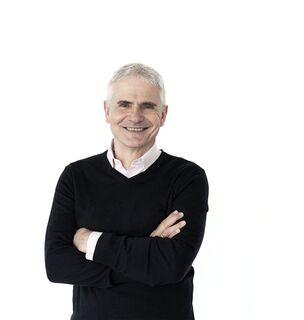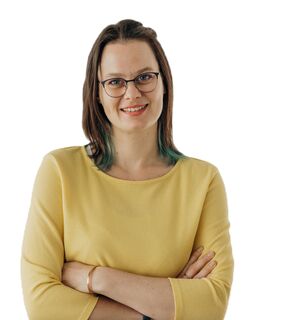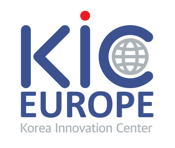PVP Advisors provides financial, business management and strategic advice and support to research institutions and companies. We mainly work with start-ups in the healthcare sector, but also offer our service to international corporate clients interested in the German innovation and start-up ecosystem.
Our service includes external assessment of projects, the provision of management resources as well as support in the strategic development of business ideas from creation to realisation. Due to our strong networks in the healthcare and the investment community, we selectively offer business development, fundraising and M&A resources to our clients.
Our Mission
Supporting outstanding scientists and entrepreneurs in validating their product ideas and solutions for successful commercialization and/or forming partnerships where we help them connect with corporate partners.
Our Vision
Translating outstanding science into commercial meaningful solutions.
Our Values
We strongly believe in the potential of innovations and partnerships to solve relevant problems in society.
Our Approach
By leveraging our long-standing venture capital expertise from PVP Advisors and its sister company Peppermint Venture Partners, we can help our partners to bring their innovations to market.
Projects
PVP Advisors is working with start-ups, research organisations and economic development agencies. For example PVP Advisors supports companies like Finda and others in their strategic considerations and development processes, e.g. investor and M&A readiness or business development.
Many companies can profit from the sounding of their growth plans. PVP Advisors can provide an unbiased view on the business plan, the timelines and financial plan, as well as can make introductions to all relevant stakeholders.
Furthermore, PVP Advisors is a long-standing partner of the Helmholtz Association to provide the external management for the Helmholtz Validation Fund. PVP Advisors fulfils the role of project manager and controller, supporting the project owner on issues such as milestone planning, tech-transfer activities and spinning off projects from the research organisation.
Validation is one of the most critical phases in technology transfer. In this step, new technologies are transferred into applicable products and services. This involves identifying the most promising areas of application and developing working demonstrators, accelerating production outside the laboratory and, in the case of medical products, conducting pre- and early clinical studies.

With the establishment of the Helmholtz Validation Fund (HVF) in 2011, the Helmholtz Association introduced a new, cross-institutional funding instrument that taps resources from the Initiative and Networking Fund. The aim of the HVF is to close the existing gap between research results and their marketable applications and between public research and private institutions. The funding amounts from the Helmholtz Validation Fund are between 0.25 and 1 million euros per year. The aim is to evaluate new technologies in terms of their technical feasibility and to achieve a functioning prototype or an initial positive preclinical validation. In order to ensure professional guidance according to industry and venture capital standards, a network of industry experts and project managers assists the project owners.
50 projects were selected by the HVF and supervised by PVPA from 2011 to 2021, 33 of which focused on life sciences. The total funding of the projects amounted to €53 million. 6 of these projects were successfully spun off and 2 are currently part of the Helmholtz Enterprise Initiative (HE), which supports the first steps towards establishing a spin-off. 10 of the completed HVF projects have already generated returns from licensing income. Members of the PVP Advisors team served on the jury of Helmholtz Enterprise Fonds.
In addition to HVF, PVP Advisors assists Helmholtz in the area of project management and controlling with 26 individual projects of the ‘Helmholtz Validation Projects’ (KA-TVP) in the sense of a sustainability and utilisation strategy. The individual projects are part of the ‘Helmholtz Transfer Campaign’ launched in 2022 and will be funded from the Initiative and Networking Fund (HVF). The central objective of the measure is to close the gap between research and application.
The spin-off Priavoid (a former HVF project of Forschungszentrum Jülich) is developing a new compound against Alzheimer's disease, which has already been successfully tested in a phase I clinical trial that was part of the HVF funding. While this already represents a significant translational step from the research organisation, the phase II clinical trial is being conducted with the support of the Bundesagentur für Sprunginnovationen (“Federal Agency for Leap Innovations”), SPRIN-D.
Osteolabs GmbH, a spin-off from GEOMAR Helmholtz Centre for Ocean Research Kiel, offers tests for the early detection of osteoporosis and has already closed its 2nd round of financing, another example of the value of HVF and HE bridging a valuation gap to create a start-up and early commercialisation.

Since 2023 PVP Advisors works with the Joachim Herz Foundation (JHS) in the context of the JHS "innovate! Acadamy". PVPA takes a role as projectmanager of the 22 funded projects from "innovate! 1, 2 and 3" (for further information please visit the JHS website) and as sparring partner for the project teams over the funding period of two years. We are excited to assist the project teams in their journey and first steps to transfer their research into marketable solutions and/or products.






